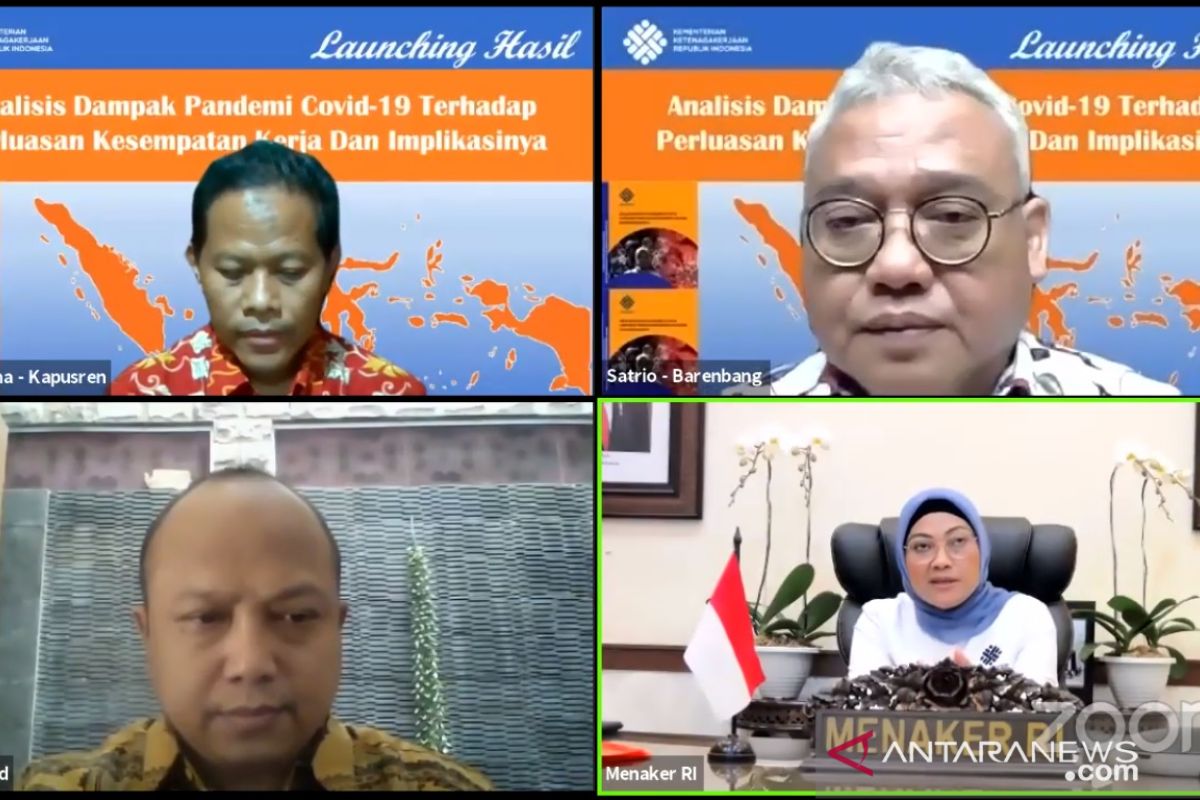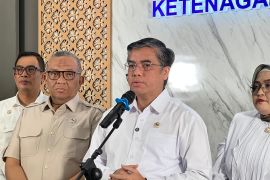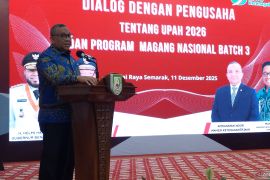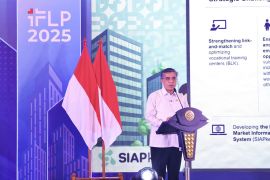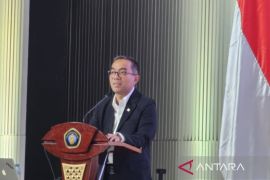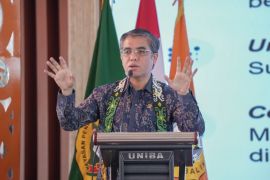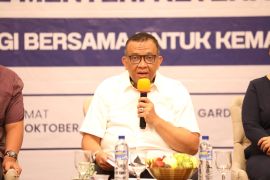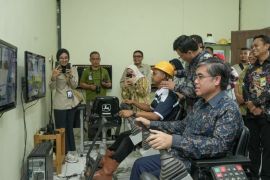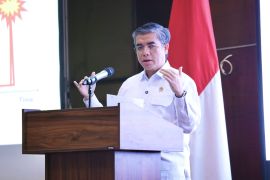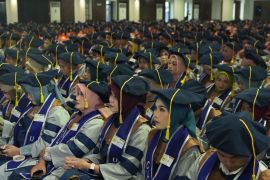To protect and restore the welfare of workers and communities affected by the pandemic, we must also prepare our worker resources as best as possibleJakarta (ANTARA) - Minister of Manpower (Menaker), Ida Fauziyah, has stressed that the coronavirus pandemic is changing the world of work and the post-pandemic economic climate will require an overhaul of the labor ecosystem and worker competencies.
In the post-pandemic world, workers will need to acquire appropriate competencies to suit the needs of a growing industry, she stated.
"To protect and restore the welfare of workers and communities affected by the pandemic, we must also prepare our worker resources as best as possible," Minister Ida said while opening a virtual event entitled ‘Analysis of the Impact of the COVID-19 Pandemic on Expansion of Job Opportunities’, in Jakarta on Tuesday.
Increased competence, Ida added, can be achieved through proper vocational training to suit the needs of the world of work after the pandemic.
Changes must also be made to the labor ecosystem as a whole, starting from the process of placing workers, fostering industrial relations, and conducting labor inspection, she pointed out.
This is to answer any challenges during the COVID-19 pandemic and after it is over, she remarked.
The pandemic has led to Indonesia adapting more quickly to changes in Industrial Revolution 4.0, which has affected the world of work as a whole, she observed. This is especially true in the use of digital technology, whose utilization has increased dramatically after COVID-19 struck, she noted.
Work time and workspace are now becoming more flexible and the future of the world of work will involve increased mobility and the use of technology at work, she said.
"This is a lesson that in the end, the COVID-19 pandemic and the era of the Industrial Revolution 4.0 have made society and industry create a new life order, a new world of work," Ida remarked.
This is in accordance with a study conducted by the Ministry of Manpower (Kemnaker), which has shown technology-based education and training will be the most desirable skill after the pandemic ends.
As part of the impact analysis study on the pandemic, the ministry had surveyed 1,105 companies operating in 17 economic sectors across Indonesia in July-October, 2020.
The survey found 26.9 percent of the companies felt technology skills would be the most needed skills after the pandemic, while 6.2 percent companies chose physical and manual skills, and 4.1 percent chose emotional and social skills as the most preferred in the post-pandemic world.(INE)
Related news: Sales, marketing, PR among 10 in-demand jobs during pandemic: survey
Related news: Manpower Ministry apportions Rp37.7 trillion for wage subsidies
EDITED BY INE
Translator: Prisca Triferna, Azis Kurmala
Editor: Fardah Assegaf
Copyright © ANTARA 2020
